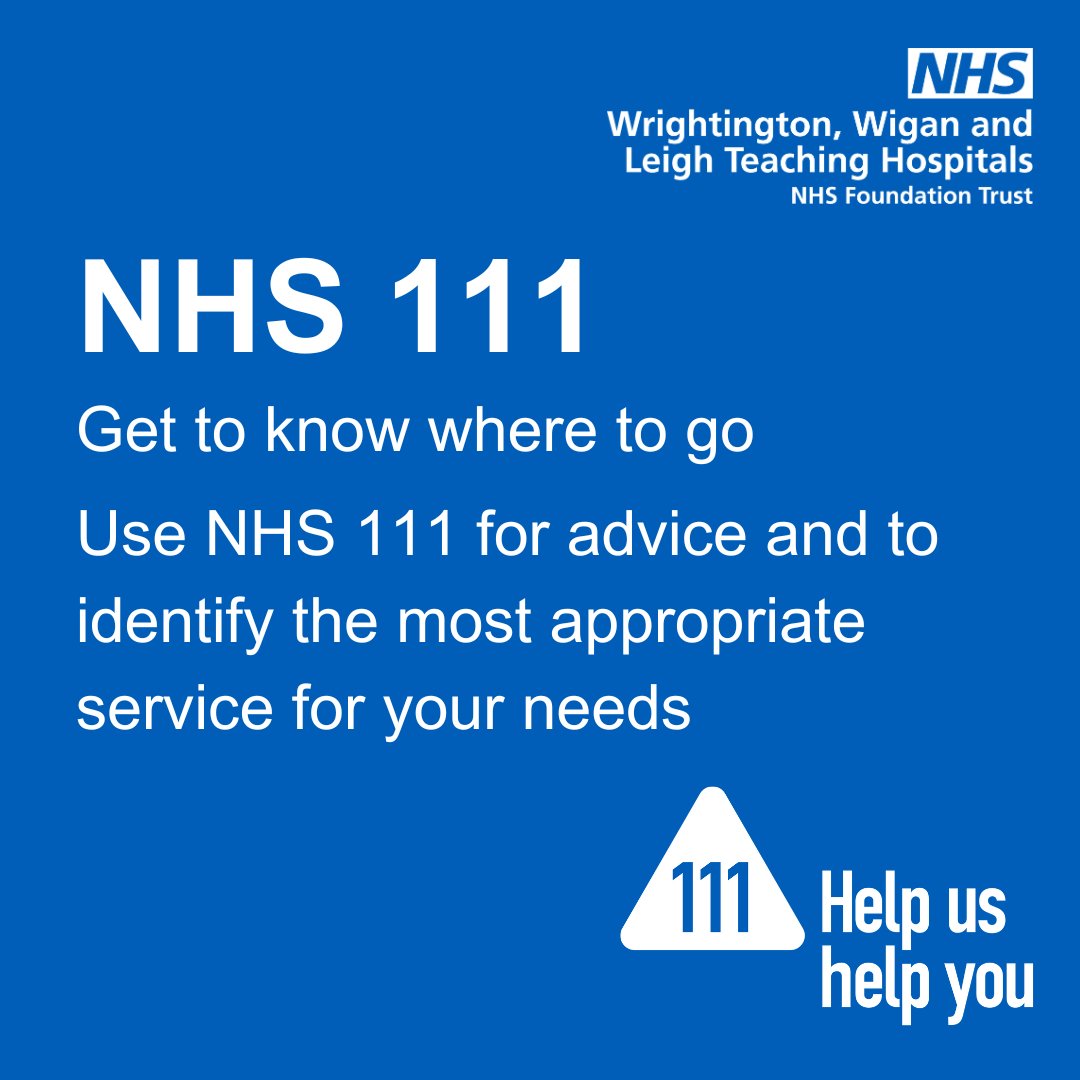
January marks one of the busiest times of the year for the NHS. People need help with everything from coughs and colds to post-holiday illnesses and winter injuries. NHS Greater Manchester is reminding you that NHS 111 is the easiest way to get health advice quickly, 24 hours a day.
The cold and icy weather brings additional risks for people with long term health conditions and those who are more vulnerable. Last year, more than 86,000 people contacted North West Ambulance Service because of a fall and 40% of emergency call-outs were to people who had fallen during the colder winter months.
NHS 111 is here to help. This could include signposting to a pharmacy, arranging a GP appointment or emergency dentist, or where necessary, advising what urgent treatment options are available. The service is designed to get patients the care they need while easing pressure on the NHS.
Use NHS 111 online or call 111, it’s simple to:
- Get expert advice on whether you need to visit A&E, your GP, or another service.
- Find help for winter bugs like flu, sore throats and coughs.
- Speak to a healthcare professional for guidance you can trust, such as a pharmacist.
- Get mental health support if you’re feeling anxious, stressed, or struggling after the holidays.
By using NHS 111, you can find out if you need to go to A&E or if there’s an alternative option to get the help you need. Using NHS 111 ensures that you will get the right help without unnecessary trips to hospital and will help save time for those who need urgent care.
When to use NHS 111:
· If you're unsure where to go for treatment
· For non-emergency medical advice
· If you have a mental health concern
· If your GP or pharmacy is closed
· When you need urgent care but it's not life-threatening
How to access NHS 111
· Call 111 for free from any phone
· Visit 111.nhs.uk for online support
· Use the BSL NHS 111 service at signvideo.co.uk/nhs111
· If English isn’t your first language, interpreters are available.
You should still ring 999 if you experience:
- signs of a heart attack like pain like a heavy weight in the centre of your chest
- signs of stroke such as your face dropping on one side
- difficulty breathing
- life threatening injury
Dr Claire Lake, Deputy Chief Medical Officer at NHS Greater Manchester said: “January is a challenging time for the NHS, with many people seeking help for seasonal illnesses, minor injuries, and other health concerns. By turning to NHS 111, either online or by phone, you can quickly find out if you need to visit A&E or if there’s a better, more convenient option. This not only ensures you get the help you need faster, but also helps our NHS services prioritise those with the most urgent needs."
Having a small supply of basic medicines, such as paracetamol, plasters, and indigestion remedies, is another way to manage minor illnesses or injuries at home, with community pharmacy teams able to offer advice on what to have at home.
Reduce your risk of falling during periods of cold weather. Spreading sand or salt on icy surfaces on driveways, garden paths, and steps can help. Dress for the cold weather by wearing layers, shoes with a good grip and wear gloves to protect your hands in case a fall does occur.
Issued on behalf of NHS Greater Manchester